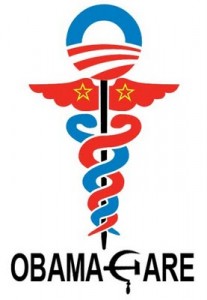
The 6-3 breakdown comes from the result in Gonzales v. Raich, 545 U.S. 1 (2005), in which the Supreme Court held that prohibiting the cultivation of marijuana for personal medicinal use was within Congress’s powers under the Interstate Commerce Clause. To the dismay of many conservatives, Justice Antonin Scalia concurred with the majority. His concurring opinion shows how to apply the Commerce Clause to something as far from interstate commerce as ACA’s individual mandate.
And the individual mandate is very far from interstate commerce. An individual is not engaging in interstate commerce merely by refraining from buying health insurance. He is not engaging in commerce. He is not engaging in anything. That puts the individual mandate beyond Congress’s commerce power but not necessarily beyond Congress’s powers.
The Supreme Court has said that Congress has the power to regulate the channels and instrumentalities of interstate commerce as well as activities that substantially affect interstate commerce. Justice Scalia said in his concurring opinion in Raich that the power to regulate activities that substantially affect interstate commerce does not come from the Commerce Clause alone but from the Commerce Clause plus the Necessary and Proper Clause. The Necessary and Proper Clause has extended the Commerce Clause pretty far. Scalia wrote that “Congress may regulate even noneconomic local activity if that regulation is a necessary part of a more general regulation of interstate commerce.”
As disturbingly vast as that power might be, the Supreme Court would have to extend it even further to reach non-economic local inactivity. That extension may or may not be “necessary” to make ACA effective, but is it “proper”?
At Obamacare’s oral argument in March, Justice Scalia posed that question to Solicitor General Donald Verrilli, saying, “Necessary does not mean essential, just reasonably adapted. But in addition to being necessary, it has to be proper. And we’ve held in two cases that something that was reasonably adapted was not proper, because it violated the sovereignty of the states, which was implicit in the constitutional structure.”
Scalia continued, “The argument here is that this also is — may be necessary, but it’s not proper, because it violates an equally evident principle in the Constitution, which is that the federal government is not supposed to be a government that has all powers; that it’s supposed to be a government of limited powers. And that’s what all this questioning has been about. What — what is left? If the government can do this, what — what else can it not do?”
The solicitor general (who didn’t do such a bad job overall) replied that the individual mandate does not invade the sphere of state government but, despite several follow-up questions, did not answer the question of whether the individual mandate improperly invades the sphere of individuals.
Justice Kennedy pressed further, saying that “to tell the individual citizen that it must act . . . changes the relationship of the federal government to the individual in a very fundamental way.” General Verilli replied that the individual mandate is predicated on the individual’s unavoidable participation in the health care market.
That appeared to be enough for Justice Breyer, who in the course of rambling questions in search of a defense of the act, asked whether one enters the health care market simply by being born. Four justices seemed to find such a limitless premise for federal regulatory power troubling. They, along with Justice Thomas, may also find it improper.
Should that happen, leftists, with their newfound conviction that judicial review is anti-majoritarian, will switch into their outraged and indignant mode. How dare the Court strike down an act because it isn’t proper after Obama and the Congress decided that it was?
The answer will be that the Court is merely giving meaning to the outermost boundary of congressional power. What hangs in the balance this week is whether the powers of Congress are in theory limited but in practice infinite.
David McFadden is a Washington, D.C.-based attorney and an occasional contributor to the Liberty Features Syndicate.






